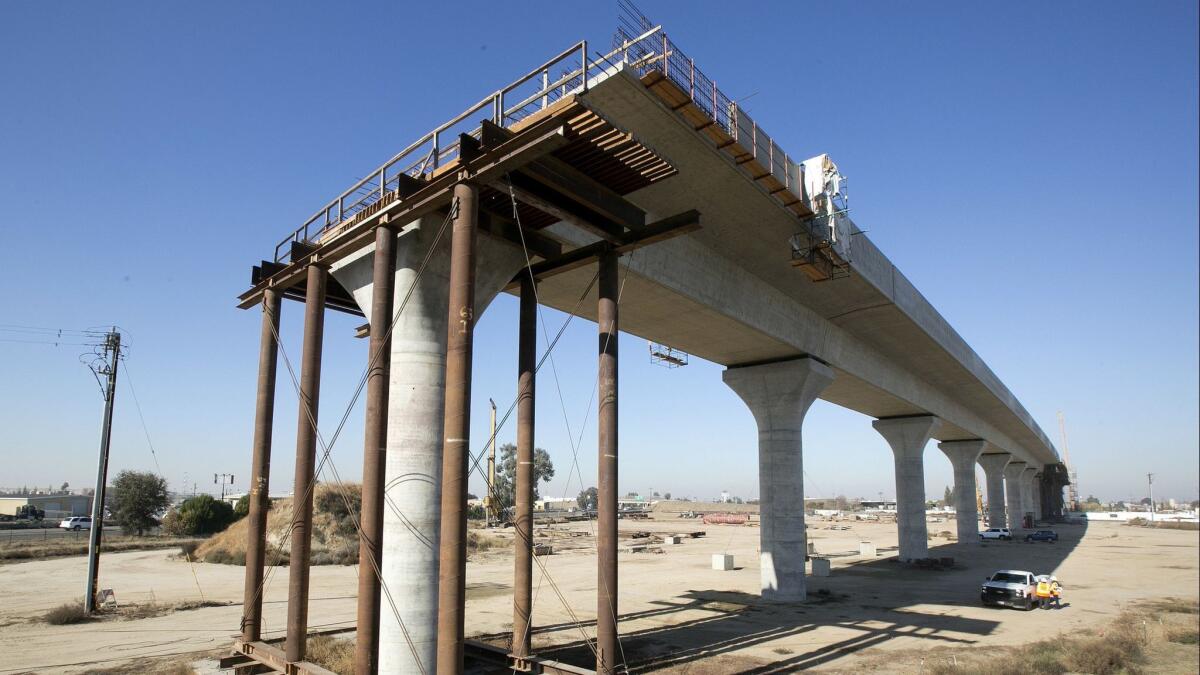Bullet train project scores possible victory in civil suit seeking to block bond money

- Share via
The California bullet train appears to have fended off a civil suit attempting to stop the project, inching the high-speed rail line toward what could be another in a series of legal victories.
A case brought by opponents seeking to stanch the flow of bond dollars to the project was dealt a blow in a tentative ruling Thursday by Sacramento County Superior Court Judge Richard K. Sueyoshi, though arguments Friday put off a final ruling.
A final decision could take three months.
The case, brought by almond farmer John Tos, Kings County and other groups, asserts that legislation that clarified the 2008 $9-billion high-speed rail bond was an unconstitutional modification of a voter-approved act.
Though only 12% of the project’s cost estimate, the bond provides the bulk of the money for current Central Valley construction. Without the bond funds, the future of the rail system would be uncertain at best.
The case involves the attempt of Assembly Bill 1889 to clarify the meaning of the 2008 bond measure’s requirement that any expenditures fund projects that would be “suitable and ready” for high-speed trains.
The plaintiffs argued that the Legislature violated legal precedent that the state Constitution requires voters to approve any change in the use of bond dollars. But the state argued that the legislation only clarified the bond measure’s language and did not change the project.
In his tentative ruling, Sueyoshi agreed that the project’s goal of building a statewide bullet train system had not changed. The tentative decision also closely examined what the bond measure meant by “ready,” saying it was understood the bullet train would be built incrementally.
But Stuart Flashman, attorney for the plaintiffs, argued that the completed construction in many areas of the state would not be ready for high-speed passenger operations by any conventional definition of the word.
Flashman said the judge’s decision not to affirm the tentative ruling essentially voids it until he issues a new decision or finalizes the tentative decision.
“The judge indicated his leanings in the tentative ruling,” said rail authority spokeswoman Lisa Marie Alley. “In the meantime, the California High-Speed Rail Authority continues to advance work on the statewide system.”
In several prior rulings, state courts have rejected suits that would have crippled the project, imposed injunctions or sent the bond measure back to voters.
Twitter: @rvartabedian
More to Read
Sign up for Essential California
The most important California stories and recommendations in your inbox every morning.
You may occasionally receive promotional content from the Los Angeles Times.











